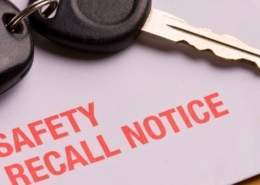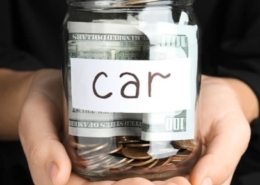Tips for Buying a Car During an Economic Downturn
Learn how to buy a car wisely, even when money is tight!
How to Buy a Car When the Economy is Down
Buying a car during uncertain economic times can feel overwhelming. The market changes a lot, people have less money to spend, and worrying about a recession adds extra stress. You must consider many things to get a good deal when buying a car.
Key Takeaways
- Buy at Strategic Times: Purchase during year-end, month-end, or sales events for the best deals.
- Stick to Your Budget: Plan your finances thoroughly to ensure affordability.
- Choose Used Cars: Opt for used vehicles to save money and get better value.
This article will give detailed advice and tips to improve your car-buying journey even when the economy is struggling.
We’ll examine how to make the most of the current market, why it’s crucial to plan your finances carefully, and the advantages of considering different options.
Car Buying Tip: If you’re in the market to buy a car, you may have noticed that a reasonable price can be difficult. Many consumers are paying more than the suggested retail price. But don’t worry! You can still get a great deal on a new car by requesting several dealer quotes to compare dealer prices in your area.
Understanding the Automotive Market During a Downturn
An economic downturn significantly impacts the automotive industry by influencing vehicle prices and availability. When you learn to interpret these market changes, you can make more informed decisions when buying a car.
Analyzing Market Trends
Firstly, it’s crucial to understand how economic downturns and consumer supply and demand affect car prices. Demand for new cars may decrease as consumers prioritize savings, leading to lower prices and more dealership incentives.
Conversely, used cars might increase prices due to increased demand, as they are generally more affordable.
New Car Demand Decreases
As people aim to save money, the demand for new cars usually falls. This results in:
- Lower prices at dealerships.
- More new car incentives and rebates, such as special financing rates or bonus features, are available at no extra cost.
Used Car Prices May Increase
- Because used cars are more budget-friendly, more people turn to them, increasing their prices due to higher demand.
Dealer Incentives and Discounts
Dealerships may offer more significant new car rebates and incentives, such as lower interest rates, cash-back offers, or extended warranty programs, to encourage purchases during tough economic times. Research and compare these incentives as part of your decision-making process.
- Lower Interest Rates: Financing a car can be cheaper as dealers offer lower rates to encourage sales.
- Cash Back Offers: Some dealers give you back a portion of the purchase price as a rebate, which can be very appealing.
- Extended Warranties: Longer warranty periods can be a big plus, offering you peace of mind for longer without additional costs.
Financial Planning for Buying a Car
When the economy is down, it is critical to focus on your financial health before making large purchases like a car. Planning carefully can protect you from future economic problems.
Assessing Your Financial Health
Begin by evaluating your financial situation. This includes understanding your credit score, current debt levels, and economic security. A strong credit score can help you receive better financing options, while low debt can make it easier to manage new car payments.
- Check Your Credit Score: Know your credit score as it dramatically affects the loan terms you might get. A higher credit score usually means lower interest rates.
- Understand Your Debt Levels: Look at your current debt. Less debt makes taking on new obligations, like a car payment, easier.
- Evaluate Financial Security: Consider how stable your income is and how much savings you have. This will help you decide how much you can comfortably spend.
Setting a Realistic Budget
Setting a realistic budget is crucial when buying a car, especially during uncertain economic times. Here are some steps to help you establish a budget that reflects your current financial status and future financial goals:
- Assess Your Savings: Before you decide how much to spend, consider how much cash you have available for a down payment without compromising your financial security. A larger down payment can reduce your monthly payments and interest costs.
Calculate Total Ownership Costs
Beyond the purchase price, you must account for all the ongoing expenses of owning a car. This includes:
- Insurance: Check different insurance quotes to estimate your monthly or annual premiums.
- Maintenance: Regular maintenance such as oil changes, tire rotations, and other services should be factored into your budget.
- Fuel Expenses: Estimate your fuel expenses by considering your commute and the fuel efficiency of the car you intend to buy.
- Unexpected Repairs: Setting aside some money for unexpected repairs is wise, especially if you are considering a used car.
Consider Future Financial Changes
Think about potential changes in your income or expenses in the future. Adjust your car budget accordingly if you anticipate significant changes, such as a job switch or moving to a new city.
- How to Buy a New Car Below Factory Invoice Price – True dealer cost and the factory invoice price are not the same… dealer cost can be much lower.
- Figure a Fair Profit New Car Offer – How to calculate a fair profit new car offer.
- How to Buy a New Car Online – Not sure where to start? Use my step-by-step guide on how to buy a new car online.
The Case for Buying Used Cars
Buying a used car can be a wise decision in tough economic times. It’s often more cost-effective, and the car’s value won’t depreciate as quickly as a new car.
Benefits of Used Cars
Buying a used car comes with several advantages:
- Cost-Effectiveness: Used cars are typically cheaper than new models due to depreciation.
- Slower Depreciation: A new car loses a significant portion of its value within the first few years, so buying a used car bypasses that initial drop.
- Lower Insurance Rates: Insuring a used car often costs less than a new car because its value is lower.
What to Look for in a Used Car
When selecting a used car, it’s critical to check its history, condition, and mileage. Tools like AutoCheck Vehicle History Reports can provide valuable insights into the vehicle’s past, including any accidents or major repairs.
- Vehicle History: Use services like AutoCheck to get a detailed car history report. This includes past ownership, any accidents, and major repairs.
- Overall Condition: Examine the car thoroughly. Check for any signs of damage or wear and tear that might cause problems later.
- Mileage: The car’s mileage can tell you a lot about its condition and how much it has been used. Lower mileage often means less wear and tear.
- Maintenance Records: Ask for the car’s maintenance records to see how well it has been maintained. Regular maintenance can extend a car’s life and improve performance.
Real-Time Bargain Hunting: Turn to Edmunds for instant access to the latest and greatest local deals, saving you time, money, and stress.
Alternative Financing Options
Exploring different ways to finance a car can give you flexibility and help you manage your budget better during tough economic times.
Leasing Versus Buying
Leasing a car might offer lower monthly payments compared to buying. However, consider the long-term costs and your driving needs, as leases typically come with mileage limits and the need to return the car in good condition.
- Lower Monthly Payments: Leasing often has lower monthly payments than buying a car with a loan.
- Consider Long-Term Costs: While leasing can be cheaper month-to-month, it might cost more in the long run once you consider that you’ll need to return the car at the end of the lease without ownership.
- Mileage Limits: Leases come with mileage restrictions. You could face hefty fees if you drive more than the allowed mileage.
- Condition Requirements: When you return a leased car, it needs to be in good condition, which might mean additional costs for any repairs or excessive wear and tear.
Loans and Credit Options
Shop around for the best auto loan rates and terms. Online lenders often offer competitive rates and are worth considering alongside traditional banks, credit unions, and financial institutions.
Shopping around for the best financing options can save you a lot of money:
- Compare Auto Loans: Compare different lenders, including banks, online lenders, and credit unions, to find the best interest rates and loan terms.
- Credit Unions: Often, credit unions offer lower interest rates on auto loans than banks because they are nonprofit organizations designed to serve their members.
- Pre-approval: Getting pre-approved for an auto loan can give you a better idea of what you can afford and puts you in a stronger position when negotiating with dealers.
Timing Your Purchase
The timing of your car purchase can significantly impact the deal you get, especially during an economic downturn. Knowing when to buy can help you secure a much better price.
Best Times to Buy a Car
Choosing the right moment to buy a car can lead to significant savings. Understanding the best times to purchase a vehicle can help you maximize your budget and get more value for your money.
Here are some critical periods when you’re likely to find the best deals:
- End of the Year: Many dealerships offer significant discounts during this time as they try to clear out old stock before new models arrive. December, in particular, can be an excellent time to purchase a car as dealers may also be looking to meet end-of-year sales quotas, leading to more competitive pricing.
- End of the Month: Similar to the end of the year, dealers and salespeople often strive to meet monthly targets at the end of the month. You might find more room to negotiate a better deal during this time.
- During Promotional Events: Watch for special promotional events and sales holidays such as Memorial Day, the Fourth of July, and Black Friday. Dealerships often lower prices significantly during these events to attract customers.
- Model Changeover Periods: When a new model is introduced, dealers are eager to sell off the current year’s models. This transition period can be a great time to purchase as dealers offer attractive incentives and discounts to make room for the newest models.
- When New Registrations Roll Out: In regions where new registration plates are issued at specific times of the year, the months leading up to this can see increased activity and potential discounts as dealerships try to clear out older stock.
Impact of Economic Recovery
Monitoring the economy can also influence your purchasing decision:
- Watch Economic Indicators: Signs of economic recovery, such as improving job reports or consumer spending, might indicate that car prices and interest rates could soon rise.
- Act Before Recovery Peaks: If you notice the economy is improving, consider purchasing before full recovery, which leads to increased car prices and financing costs.
Economic Downturn Car Buying FAQs
What should I consider before buying a car in a downturn?
Assess your financial stability, consider the type of car you need, and explore different financing options.
Is it cheaper to buy a car during an economic downturn?
It can be cheaper due to lower demand, leading to better deals and dealership incentives.
Are used cars a better option during a downturn?
Yes, used cars can be of better value as they are typically less expensive and depreciate slower than new cars.
What are the risks of buying a car during a recession?
The main risks include potential financial instability that could affect your ability to keep up with payments and the possibility of car values dropping.
How does an economic recovery affect car prices?
As the economy recovers, car demand typically increases, which can raise prices and financing rates.
Final Thoughts: Buying a Car During Hard Economic Times
Buying a car during an economic downturn requires careful thought and strategic planning. To successfully navigate the complexities of the automotive market, you should start by understanding current market trends. Knowing when prices are likely to drop and what models are available can help you identify the best opportunities. Next, assess your financial health by checking your credit score, reviewing your savings, and ensuring a stable income. This step is crucial as it determines how much you can afford to spend on a new car.
Considering used vehicles is also a wise move. Used cars often provide better value because they cost less than new cars and depreciate more slowly. Ensure the vehicle’s history, condition, and mileage are thoroughly inspected for a reliable purchase. Furthermore, explore different financing options. Weigh the benefits of leasing versus buying and look into various loan options from banks, credit unions, or other financial institutions to find the financing method that offers the best terms and fits your budget.
Timing your purchase wisely is also crucial. Aim to buy when dealers are more likely to offer significant discounts, such as at the end of the month, the end of the year, or during special sales events. By taking these steps, you can make an intelligent and informed decision when purchasing a car in uncertain economic times, ensuring you get the best value for your money.
















